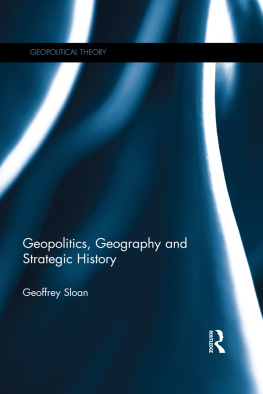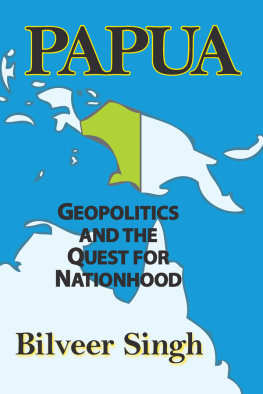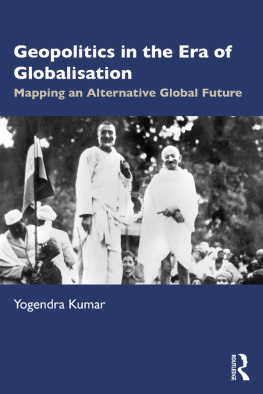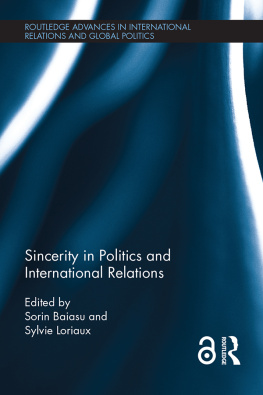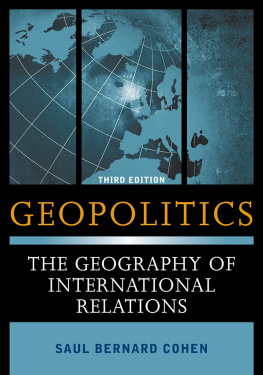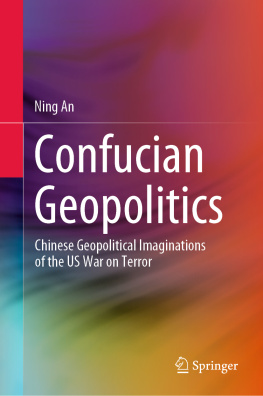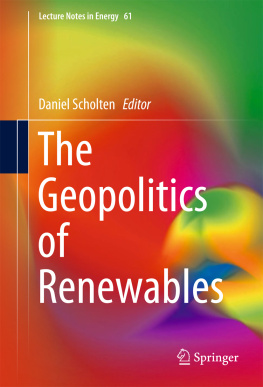First published 1992 by Gordon and Breach Science Publishers
Published 2021 by CRC Press
Taylor & Francis Group
6000 Broken Sound Parkway NW, Suite 300
Boca Raton, FL 33487-2742
1992 by Taylor & Francis Group, LLC
CRC Press is an imprint of Taylor & Francis Group, an Informa business
No claim to original U.S. Government works
ISBN 13: 978-2-88124-535-0 (hbk)
This book contains information obtained from authentic and highly regarded sources. Reasonable efforts have been made to publish reliable data and information, but the author and publisher cannot assume responsibility for the validity of all materials or the consequences of their use. The authors and publishers have attempted to trace the copyright holders of all material reproduced in this publication and apologize to copyright holders if permission to publish in this form has not been obtained. If any copyright material has not been acknowledged please write and let us know so we may rectify in any future reprint.
Except as permitted under U.S. Copyright Law, no part of this book may be reprinted, reproduced, transmitted, or utilized in any form by any electronic, mechanical, or other means, now known or hereafter invented, including photocopying, microfilming, and recording, or in any information storage or retrieval system, without written permission from the publishers.
For permission to photocopy or use material electronically from this work, please access www.copyright.com (http://www.copyright.com/) or contact the Copyright Clearance Center, Inc. (CCC), 222 Rosewood Drive, Danvers, MA 01923, 978-750-8400. CCC is a not-for-profit organization that provides licenses and registration for a variety of users. For organizations that have been granted a photocopy license by the CCC, a separate system of payment has been arranged.
Trademark Notice: Product or corporate names may be trademarks or registered trademarks, and are used only for identification and explanation without intent to infringe.
Visit the Taylor & Francis Web site at
http://www.taylorandfrancis.com
and the CRC Press Web site at
http//www.crcpress.com
Chapters 1 and 4-7 were originally published in Volume 17, Number 1 of the journal International Interactions.
Chapter 8, "Opportunity, Willingness and the Diffusion of War" by Randolph M. Siverson and Harvey Starr was originally published in American Political Science Review, Volume 84, Number 1, pp. 47-67, March 1990.
Library of Congress Cataloging-in-Publication Data
The New geopolitics / edited by Michael Don Ward.
p. cm.
Includes index.
ISBN 2-88124-535-8
1. Geopolitics. I. Ward, Michael Don, 1948
JC319.N45 1992
327.1'01 - - dc20 91-44713
CIP
DOI: 10.4324/9781315075242
CONTENTS
Harvey Starr
Chapter Two Geography of International Conflict and Cooperation: Theory and Methods
John O 'Loughlin and Luc Anselin
Chapter Three Geography of International Conflict and Cooperation: Spatial Dependence and Regional Context in Africa
Luc Anselin and John O'Loughlin
Chapter Four Modernity and Process of State Formation
Andrew Kirby and Michael Don Ward
Chapter Five The Dynamics of Superpower Spheres of Influence: US and Soviet Military Activities, 1948-1978
Jan Nijman
Chapter Six Geography and War: A Review and Assessment of the Empirical Literature
Paul F. Diehl
Chapter Seven Interstate Metrics: Conceptualizing, Operationalizing and Measuring the Geographic Proximity of States since the Conference of Vienna
Charles S. Gochman
Chapter Eight Opportunity, Willingness and the Diffusion of War
Randolph M. Siverson and Harvey Starr
- Chapter Two Geography of International Conflict and Cooperation: Theory and Methods John O 'Loughlin and Luc Anselin
- Chapter Three Geography of International Conflict and Cooperation: Spatial Dependence and Regional Context in Africa Luc Anselin and John O'Loughlin
- Chapter Four Modernity and Process of State Formation Andrew Kirby and Michael Don Ward
- Chapter Five The Dynamics of Superpower Spheres of Influence: US and Soviet Military Activities, 1948-1978 Jan Nijman
- Chapter Six Geography and War: A Review and Assessment of the Empirical Literature Paul F. Diehl
- Chapter Seven Interstate Metrics: Conceptualizing, Operationalizing and Measuring the Geographic Proximity of States since the Conference of Vienna Charles S. Gochman
- Chapter Eight Opportunity, Willingness and the Diffusion of War Randolph M. Siverson and Harvey Starr
Guide
INTRODUCTION Throwing the State Back Out
GEOPOLITICS, POLITICS AND GEOGRAPHY
For several thousand years now, geography has played a major role in strategy, and strategy has played a major role in politics. Politics is generally thought of as the "art" of obtaining desired outcomes, strategy a plan for effectively implementing these goals, and geography often what is being obtained. The function of all three has changed markedly over the centuries to be sure, and these changes are well documented not only by historians but also by cartographers, perhaps too well documented. Like the economists who correctly predicted five of the past eleven recessions, political analysts have been quick to chronicle the emergence of many a new era. Indeed the time scale of history has accelerated.
The last seventy years have been remarkable in the vast changes in and challenges to social organization that have emerged, indeed erupted. Two global wars, the birth of over one hundred new states, the growth of international governmental and nongovernmental agencies and organizations, as well as the destruction and rebirth of two of the major economic forces in the world, not to mention the quickly announced death and funeral of a major ideology that just as quickly seized center stage seventy years earlier. These events and processes will make the twentieth century an important watershed in human history, perhaps as important as the thirteenth or sixteenth or nineteenth. With all the changes, it has been a period in which the state has grown in function and importance worldwide. The politics of this era has in many ways been the politics of states, or central governments.
The politics of this era has in many ways also been characterized as the politics of violence. It is not coincidental that, for the most part, the state has held an effective monopoly on the means of violence. The power of state-making has been intimately tied to the power of war-making. War-making itself has generally brought with it the powers of resource adsorption and extraction. If for a brief while some astute observers noted the growth of economics as the arena of politics, the attention span was short-lived, in part because of the heightened salience of defense issues, arms negotiations and the "nagging" persistence of about fifty or so ongoing wars around the world. Many of these wars have beenand continue to bewaged over borders. For some, this is the apparent and real influence of geography on politics: the battle for territory. This book illustrates how the perspective is too simplistic to account for the ways in which the locale of interaction provides, or creates, a rich multitude of interaction opportunities, the bulk of which are managed by central governments, i.e., states.


